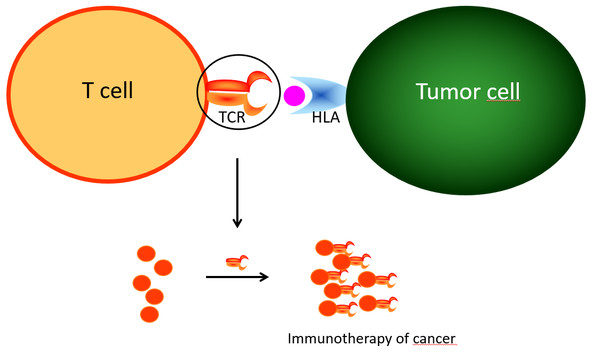Identification of cancer specific T-cell receptors for immunotherapy
Gene therapy makes it possible to engineer tumor-specific T-cells by chimeric antigen receptors (CARs) or T-cell receptors (TCRs), and those engineered T-cells have demonstrated powerful anti-tumor reactivity in cancer therapy. TCRs have the conceptual advantage that both antigens derived from extracellular and intracellular proteins can be recognized in the context of HLA molecules at the cell surface of target cells.
Recently, Leiden University Medical Center (LUMC) has identified different high affinity tumor specific TCRs; TCRs specific for PRAME, recognising a high variety of cancers, and TCRs specific for the B-cell transcription factor BOB1, that exert highly potent reactivity against different B-cell malignancies, including multiple myeloma. Clinical studies with these different tumor specific TCRs will be initiated coming years by our consortium partner Bellicum Pharmaceuticals.
With a high-throughput strategy LUMC and Bellicum Pharmaceuticals have identified novel high affinity TCRs directed against POU2AF1/BOB1 and PRAME but restricted to other frequently expressed HLA molecules. These TCRs will increase the number of cancer patients that can be treated with TCR gene therapy. With the TCR gene therapy studies they hope to develop effective medicines for cancer patients that will lead to cure of cancer patients or prevention of cancer progression and thereby improving the quality of life of these patients.



